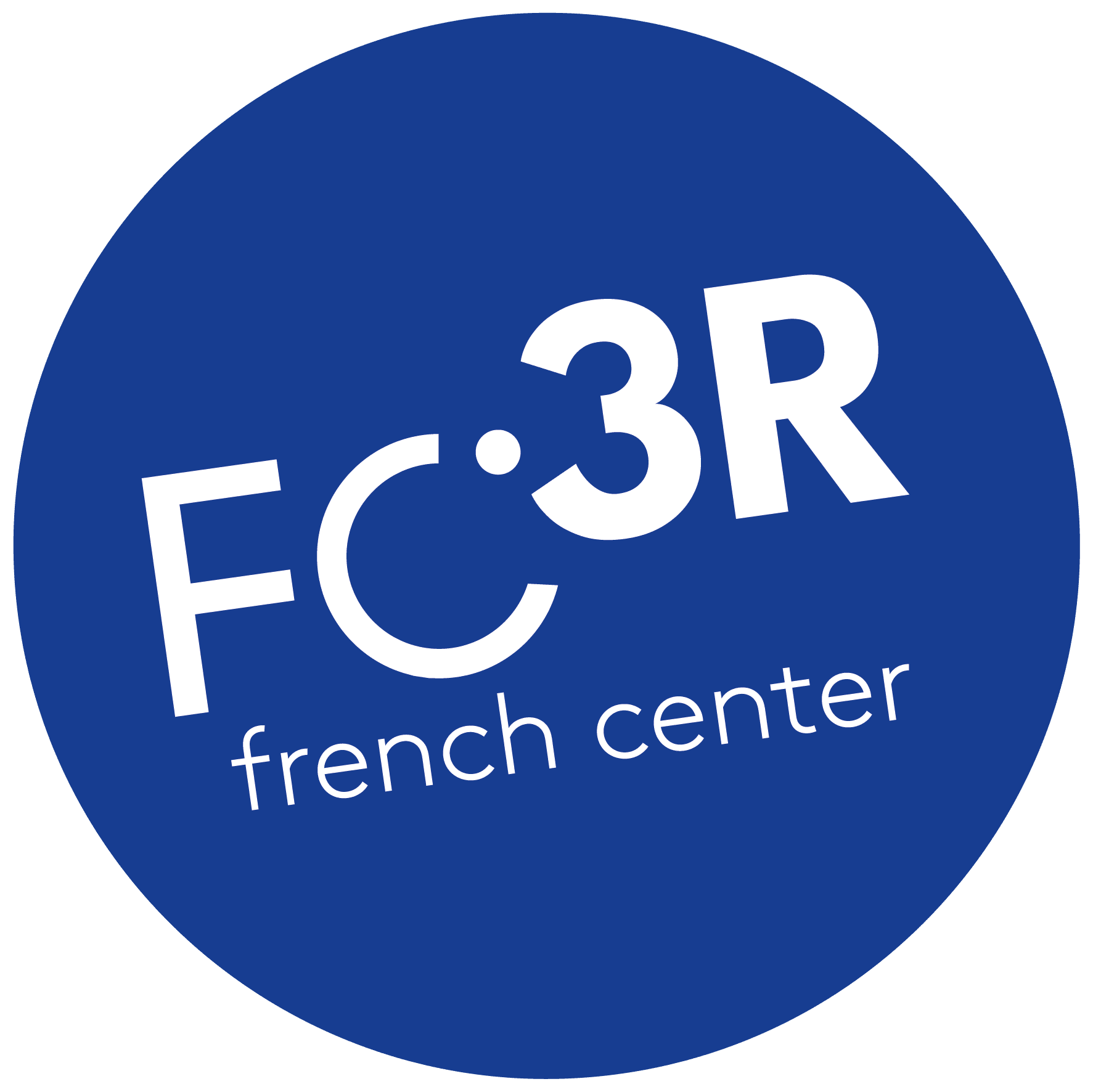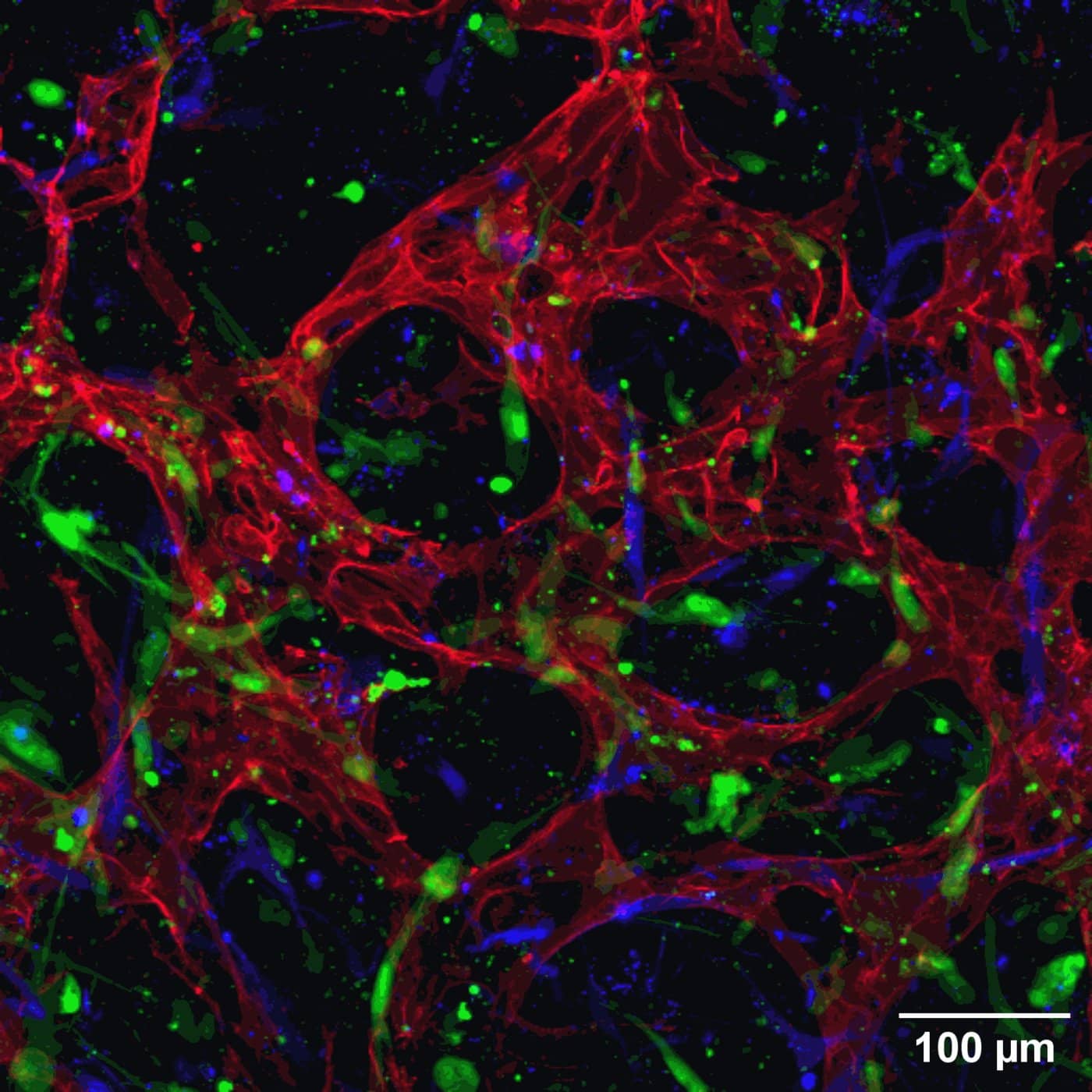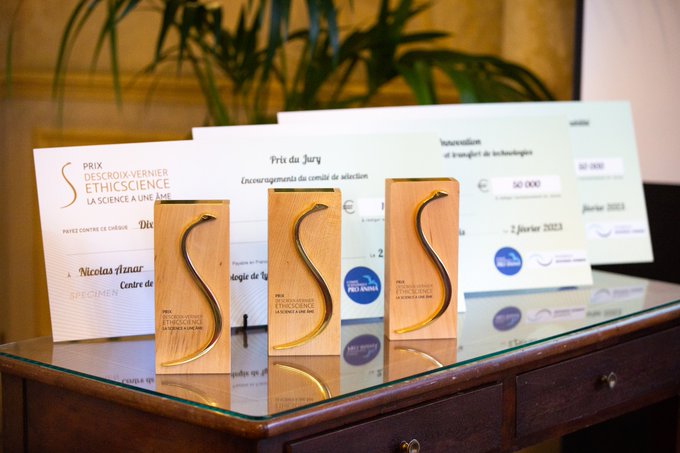

The Descroix-Vernier EthicScience Prize is a continuation of the EthicScience Prize: it rewards, every two years, scientific programs that work for a research free of animal experimentation, based on the most advanced and efficient scientific and technological knowledge. On February 2, 2023, the two institutions awarded, for the first time, the Descroix-Vernier EthicScience Prize to three scientific programs.
On the evening of February 2, 2023, the Descroix-Vernier EthicScience Prizes, organized by the Pro-Anima Scientific Committee and the Descroix-Vernier Foundation, were awarded to scientific projects based on non-animal approaches. The FC3R had the opportunity to talk with the four laureates to learn more about their projects.
Sophie Léon and Julien Marie, winners of the "Development and applicability" prize
Sophie Léon is the operational manager of the Ex-Vivo plateform at the Centre Léon Bérard (CLB) and the Centre de Recherche en cancérologie of Lyon (CRCL) and Julien Marie is a INSERM research director, who leads the "TGF-beta et immunorégulation" laboratory and heads the TERI department at the CRCL. Together, they have developed a method that allows to culture and experiment on tumor biopsies taken from patients.
The Ex-Vivo platform organizes and centralizes the regulatory provision of anonymized fresh tissue samples in collaboration with the clinical departments of the Centre Léon Bérard after validation by a multidisciplinary committee. Within the platform, the samples are included in a specific gel developed for this purpose, then 250µm sections are made using dedicated equipment before being placed in a culture medium adapted to the origin of the tumor. It is then possible to keep these samples, composed of non-dissociated human tumor cells, but also of all their microenvironment (immune cells, endothelial cells, matrix, etc.), for 2 to 3 days under 5% CO2. This approach makes it possible to study the mechanisms of different cancers as closely as possible to what is happening in the patient, but also to test potential treatments in a way that is adapted to the type of cancer, its origin, and the physiology of each patient. On average, they can generate 8 slices from a single sample, which allows to compare different conditions/treatments on the same cancer, and to correlate the results obtained with the patient's clinical data.
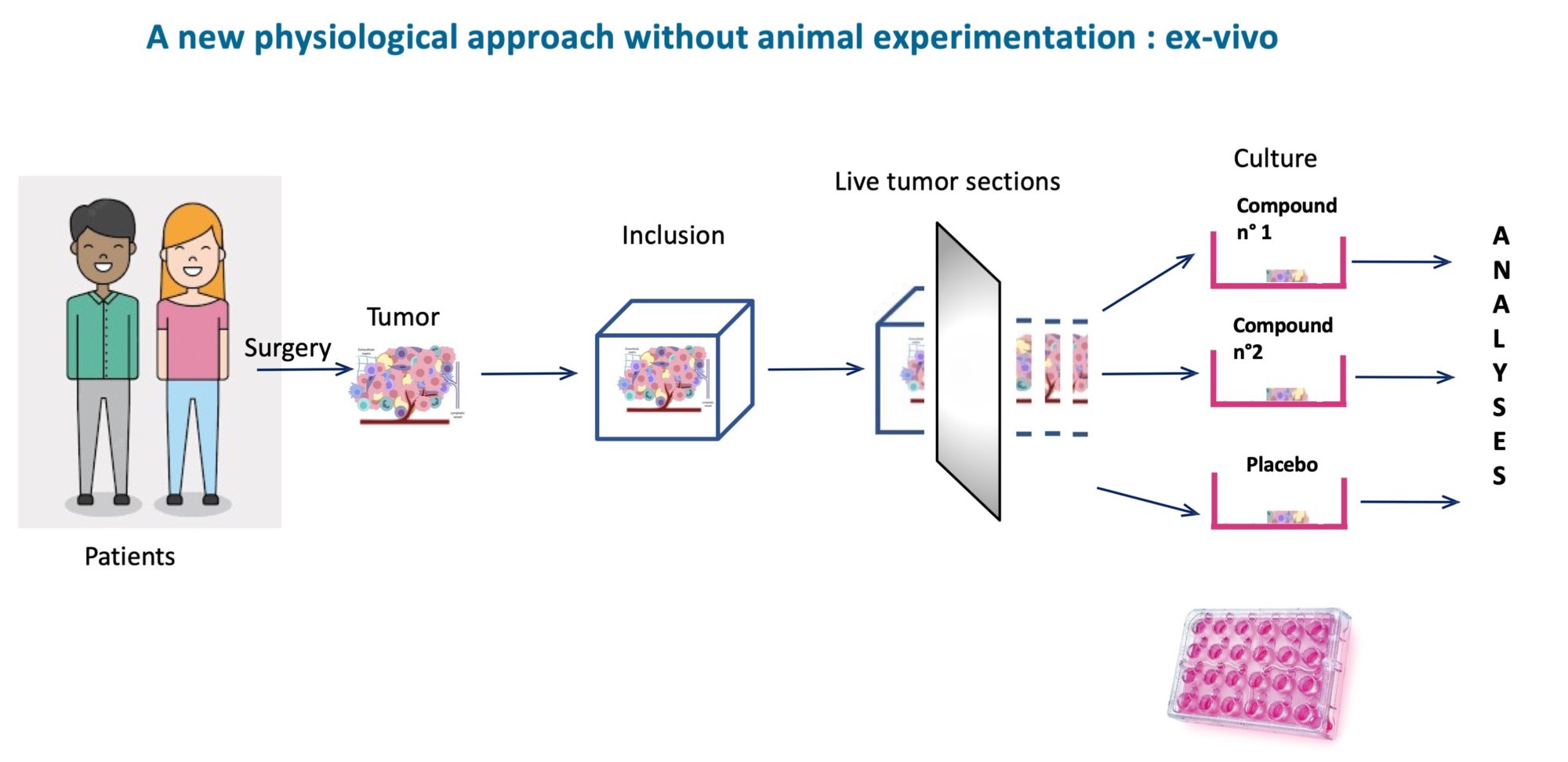
Their method therefore has a strong potential for personalized medicine, and makes it possible to reduce the use of animal models in cancerology in order to identify effective molecules for tomorrow's therapies. However, this method faces some limitations, notably the size of the biopsies from patients and the availability of samples, especially for rare cancers. It should be noted that the cost of this new experimental approach is well below that required to work with PDX (patient-derived xenograft) animal models. Julien Marie and Sophie Léon wish to make their technique known and to share their knowledge as widely as possible, in particular by establishing scientific collaborations. Thanks to the money collected during the Descroix-Vernier Ethicscience prize, this duo will launch the development of approaches for pancreatic cancer, a cancer with too often a poor prognosis.
Agathe Figarol, winner of the "New concepts and technology transfer" award
Dr. Agathe Figarol is a professor-researcher in bioengineering at the University of Franche-Comté, Besançon. She is interested in nanoparticles and their use for curative purposes (nanomedicine). The project for which Agathe Figarol won a prize concerns glioblastoma multiforme (GBM), a brain cancer with a particularly poor prognosis, with a median survival of 14 months for a follow-up with treatment. She is developing a glioblastoma-on-a-chip, a method requiring expertise in materials engineering, chemical engineering and 3D cell culture.
|
|
To this aim, glioblastoma cells are seeded on a microchip of about 10 mm2 of her design, within a fibrin and collagen matrix. In order to reproduce the pathophysiology of glioblastoma as well as possible and to test treatments, the main goal of the project is to make the system more complex by creating a blood-brain barrier. For this, a vascularization must be created from venules dug in the matrix and which will then be lined from the inside by endothelial cells. Electroacoustic sensors will be set up to determine whether a molecule, with the help of a nano-transporter, passes through the blood-brain barrier. The relevance of this technique compared to the classical 2D cultures is to be able to deliver drug molecules via the circulation, as it would be the case physiologically in a patient. |
This technique has a strong potential for personalized medicine by using patient tumor samples and would allow to test the efficacy of different treatments directly on the patient's glioblastoma-on-chip. Several improvements could be made to the device in the longer term, such as the progressive elimination of animal products, such as fetal calf serum, but also of small proteins (growth factors, fibronectin, heparin, etc.) used for the culture, which could be synthesized by recombination.
Nicolas Aznar, Jury Prize Winner
Nicolas Aznar is a CNRS researcher and has been working since 2018 at the CRCL, where he leads a research group that studies the impact of the microenvironment on cell fate. The project for which he received the jury prize is based on the use of organoids (pseudo-organisms composed of cells that self-organize) to study the impact of hormones, mechanical or metabolic stress, pollutants and other environmental parameters on cellular plasticity.
Auvergne-Rhône-Alpes is unfortunately behind in the use and mastery of organoid culture compared to other regions in France where the development of this technology is better structured. This is why Nicolas Aznar and his team decided to develop this "know-how" initially from murine stem cells. They discovered that standard culture methods were not robust enough and could disturb the viability of the organoid or the control of the different cell populations that compose it, thus biasing the interpretation of results. His team is now dedicated to standardizing and improving the quality of this organoid culture thanks to the invention of an innovative 3D culture device while freeing itself from the variabilities induced by animal products (serum-free media, development of inert matrices, etc). Currently, their research focuses mainly on the gastrointestinal tract for which they apply this new culture method to create standardized organoids from human cells in a physiological and pathological context such as colorectal cancer or Crohn's disease for example.
Their project has been supported by many national and European organizations such as CNRS innovation, the French National Research Agency, the Cancéropôle CLARA and a Marie Sklodowska-Curie Horizon Europe funding which allowed them to pursue and intensify their work and to obtain many partnerships with pharmaceutical companies, in particular to test potential drugs on their standardized organoids. In addition, this expertise has also allowed them to set up a training course on organoids, managed by CNRS Formation Entreprises, and to disseminate more widely this know-how which represents today a strong weapon of the Replacement.
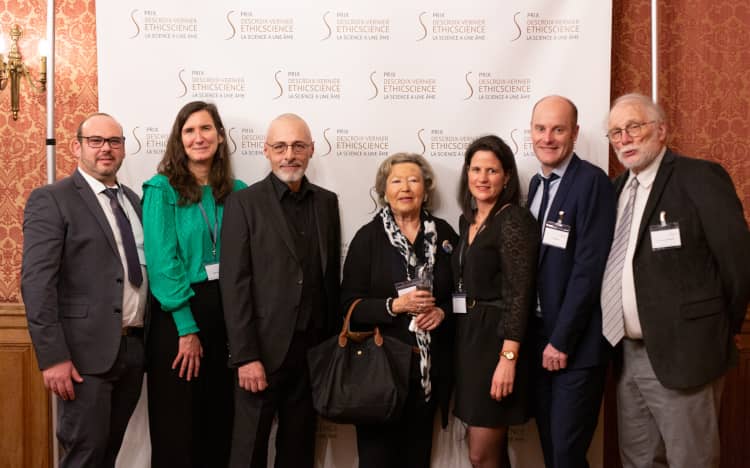
The FC3R congratulates the talented laureates for these well-deserved awards, and salutes the commitment of all the brilliant French researchers who are advancing science, innovation and health, while developing methods that use fewer and fewer animals and animal products.
